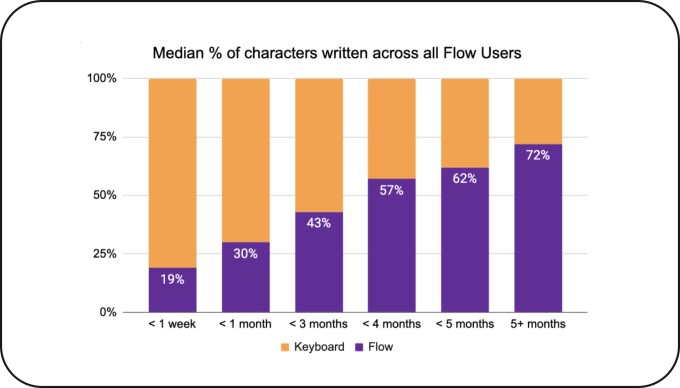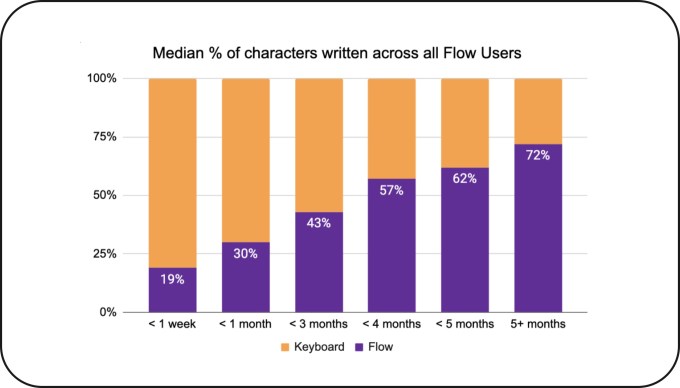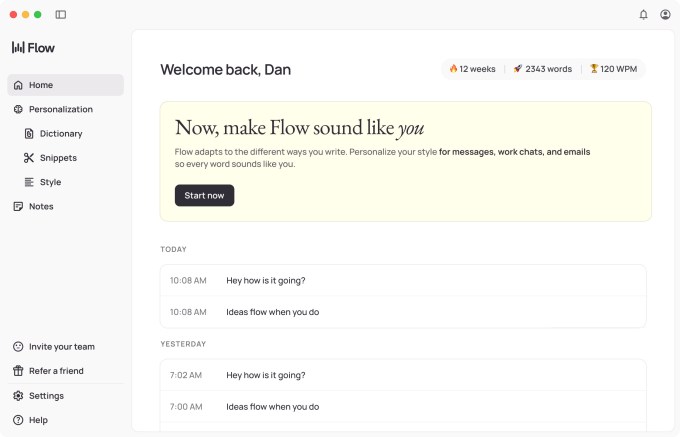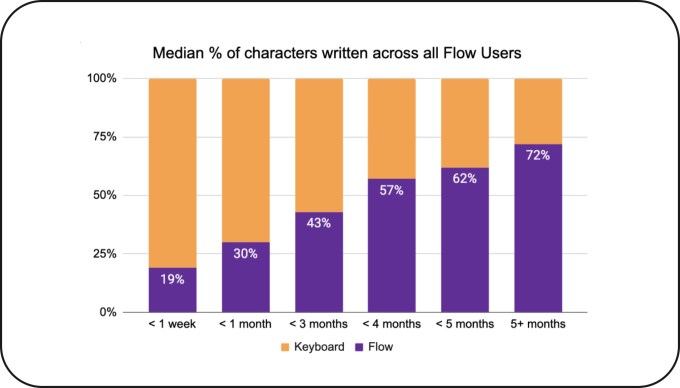Key Points
- Wispr raised $25 million led by Notable Capital, adding to a prior $30 million round for a total of $81 million.
- Hans Tung joins Wispr’s board as an observer.
- Wispr Flow sees 40 percent month‑over‑month growth since June and a 100‑fold increase in user base year‑over‑year.
- The app has reached 270 Fortune 500 companies and signed 125 enterprise customers.
- New user‑guidance flow introduced to address drop‑off among non‑technical users.
- Plans to launch an Android beta by year‑end and a stable version in early 2025.
- Company aims to build proprietary voice models with an error rate claimed at around 10 percent.
- Testing a closed API with select enterprises, with broader developer access slated for next year.



Funding Milestone and Investor Backing
Wispr, a voice AI company, closed a $25 million financing round led by Notable Capital, with participation from Steven Bartlett’s Flight Fund. This follows a $30 million round earlier in the year led by Menlo Ventures, bringing Wispr’s total capital raised to $81 million. Hans Tung, a Notable Capital partner who has backed firms such as Affirm, Airbnb, Slack, Coinbase, Anthropic, and TikTok, will join Wispr’s board as an observer.
Product Traction and Enterprise Adoption
Wispr’s dictation application, Wispr Flow, is experiencing strong market traction. After three months of usage, the average user composes more than half of their characters using the app. The platform has engaged 270 Fortune 500 companies and secured 125 enterprise customers. Since June, Wispr Flow’s usage has grown 40 percent month‑over‑month, and the company reports a 100‑fold increase in its user base year‑over‑year with a 70 percent retention rate over twelve months.
User Experience Enhancements
Wispr identified a usage dip among non‑technical users who installed the app, tried the dictation feature, and then stopped due to unclear guidance on using dictation across other applications. In response, the team introduced a new design flow that directs new users to leverage dictation in the apps they use most, improving overall engagement.
Expansion Plans and Technical Roadmap
With the fresh funding, Wispr aims to expand internationally and explore new product opportunities. The company plans to hire top machine‑learning talent to further improve its voice models and reduce the need for post‑dictation edits. Wispr claims an error rate of about 10 percent, which it positions as lower than OpenAI’s Whisper (27 percent) and Apple’s native transcription (47 percent). The firm is also developing an Android version of Wispr Flow, with a beta slated for release by the end of the year and a stable launch targeted for early 2025. Beyond consumer use, Wispr is testing a closed API with select enterprises and hardware partners, with intentions to open the platform to a broader developer audience next year.
Competitive Landscape and Vision
Wispr operates in a competitive dictation space that includes YC‑backed Willow and Aqua, Monologue (part of Every’s subscription bundle), Typeless, TalkTastic, Superwhisper, and BetterDictation. Wispr’s ambition extends beyond simple transcription; the company is working toward automating tasks such as email replies, positioning Wispr Flow as a voice‑led operating system that can initiate workflow automation. Notable Capital’s Hans Tung expressed confidence in Wispr’s user experience and its potential to scale.
Source: techcrunch.com
